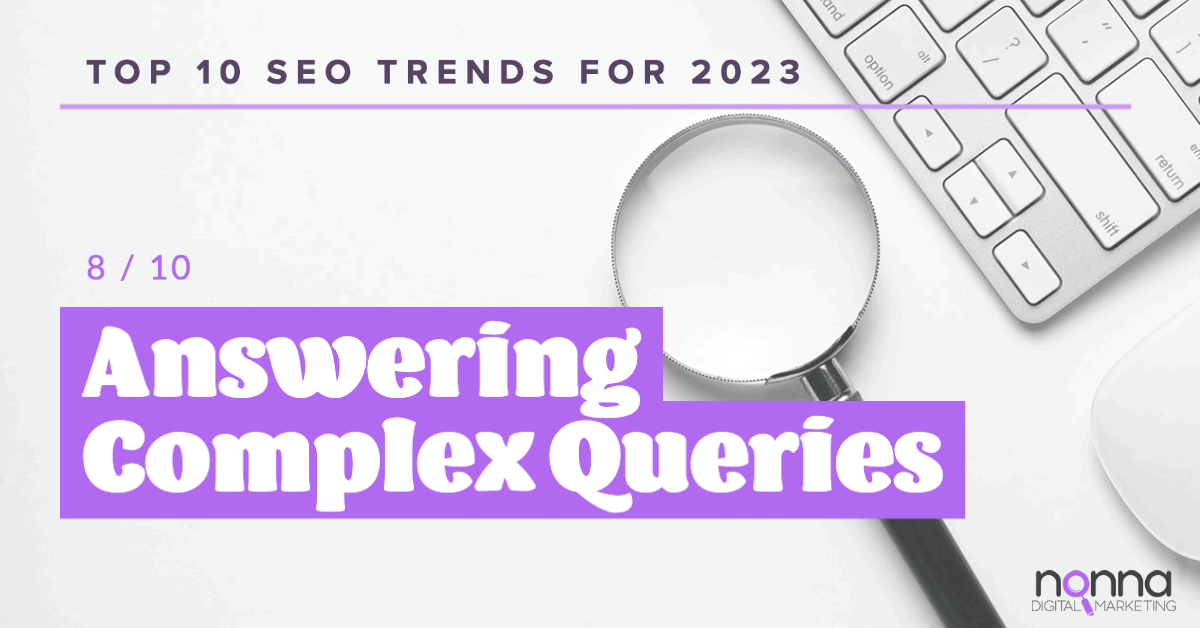As search engines become more advanced and user behavior evolves, answering complex queries is becoming an increasingly important trend in SEO for 2023. In this blog post, we’ll explore what complex queries are, why they matter, and how you can optimize your website to answer them.
What are complex queries?
Complex queries are search queries that involve multiple subtopics or are phrased in a way that requires a deeper level of understanding from the search engine. They may also include questions that require a more specific or nuanced answer, such as “what are the best vegan restaurants in Seattle for gluten-free options?” or “how can I improve my marathon time with plant-based nutrition?” These queries often require a high level of expertise and domain knowledge to answer effectively.
Why do complex queries matter?
As search engines become more sophisticated, they are better able to understand the context and intent behind complex queries. By providing detailed and accurate answers to complex queries, you can not only improve your search engine rankings but also establish yourself as a thought leader in your industry. This can help you attract more qualified traffic and increase your credibility among your target audience.
How can you optimize your website to answer complex queries?
To optimize your website for complex queries, you need to focus on creating high-quality, comprehensive content that answers your audience’s questions in detail. This means going beyond simple keyword optimization and focusing on topics and subtopics that are relevant to your audience.
Here are some tips for optimizing your website for complex queries:
- Research your audience’s search queries: Use tools like Google Search Console, Google Trends, and SEMRush to identify the most common search queries related to your business. This will help you understand the specific topics and questions your audience is searching for.
- Create comprehensive content: Once you’ve identified your audience’s search queries, create content that provides detailed answers to their questions. Use subheadings, bullet points, and images to break up your content and make it more readable.
- Use structured data: Structured data helps search engines understand the content on your website more easily. Use schema markup to provide information about your content, such as recipes, reviews, and events.
- Focus on user experience: Make sure your website is easy to navigate and mobile-friendly. Use clear calls to action to encourage visitors to engage with your content and sign up for your email list.
In conclusion, answering complex queries is a crucial SEO trend for 2023. By optimizing your website to answer your audience’s questions in detail, you can improve your search engine visibility, attract more qualified traffic, and establish yourself as a thought leader in your industry. Start by researching your audience’s search queries and creating high-quality, comprehensive content that answers their questions in detail.


